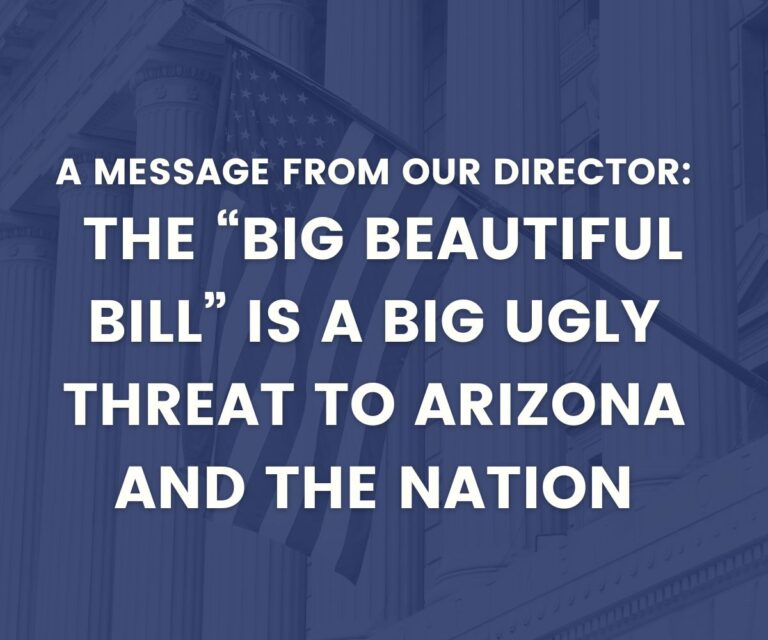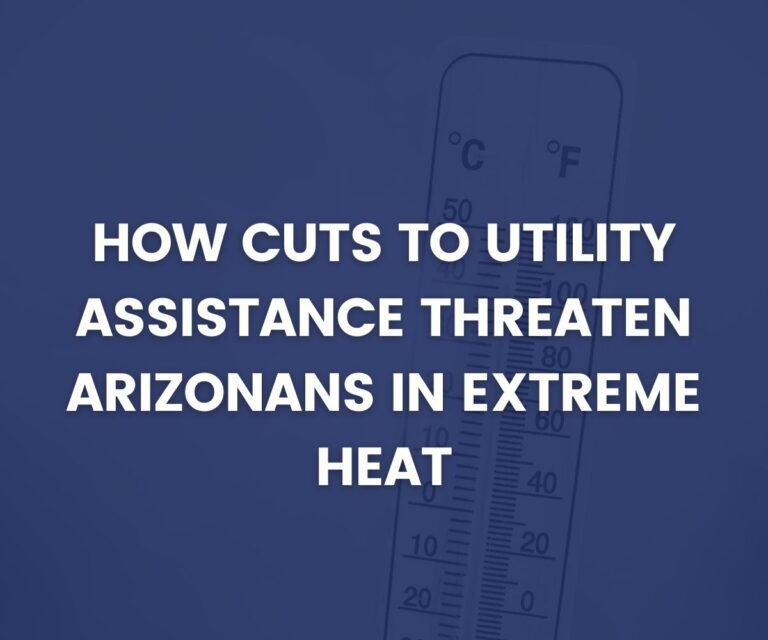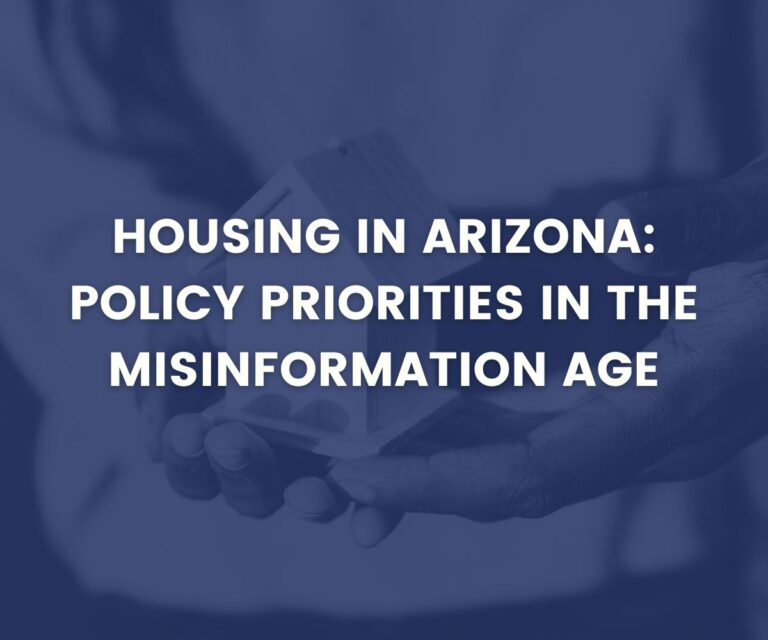Arizona in the time of COVID-19 – Housing Security
The COVID-19 pandemic and the resulting loss of income has put a real strain on the ability for many households in Arizona to make their rent or mortgage payments. Together with the inability to afford food and other usual household expenses, housing insecurity continues to threaten the well-being of far too many Arizonans. According to analysis of the Household Pulse Survey from the U.S. Census Bureau, approximately 159,000 Arizona households (1 in 7 who rent) are behind on payments, and over 37% of households (over 1.2 million Arizonans) do not have “high confidence” in making their next rent or mortgage payment.
Long a problem in Arizona before the pandemic, many households now find themselves on the brink of eviction and homelessness. Approximately 83,000 renter households in Arizona report that it is “very” or “extremely” likely that they will face eviction in the next two months. Survey responses further demonstrate that housing insecurity is especially challenging for households of color, households with children, and households with lower incomes.
Housing stability and race
According to recent estimates, Black households in Arizona are far less likely to be caught up on rent payments, a rate over twice that of their White peers. Regarding future rent or mortgage payments, adults reporting from households of color are far less likely to have high confidence in making the next payment. More than half of Latinx households, Black households, and households of other or multiple races (including American Indian) are reported to not have high confidence in making their next rent or mortgage payment. By contrast, only 28% of White renter households lack this confidence.
Presence of children
Hardship during the pandemic, including housing insecurity, is also particularly felt by households with children, who are more likely to report being behind on rent and without high confidence in making their next rent or mortgage payment.
Income
During the pandemic, housing insecurity has reached far up the income spectrum, with households not reporting high confidence in making their next rent or mortgage payment. Over half of households that do not have high confidence in making their next payment made less than $75,000 in 2019.
About the data
The Household Pulse Survey, launched by the U.S. Census Bureau in April 2020, provides nearly real-time weekly data on how COVID-19 is impacting the lives and livelihoods of Americans. Along with stories from those impacted, administrative data, and other surveys, it is an important tool to demonstrate the need and craft policy solutions for Arizonans. The AZCenter will be updating this entry monthly to reflect new data collected. For more information on the Household Pulse Survey, visit this website. For more national data, or to see how Arizona compares to other states regarding hardship as a result of the COVID-19 pandemic, visit the tracker published by the Center on Budget and Policy Priorities.



